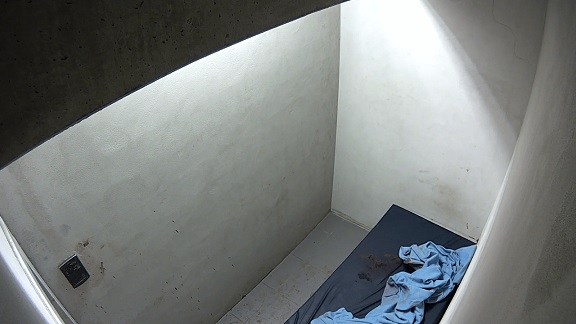The government of Slovakia has signed on as a civil party to the investigation of the death of one of their citizens, Jozef Chovanec, who died in Belgian police custody in 2018.
The case is still being investigated, and no legal proceedings have yet been instituted, but Belgian law allows anyone who has a valid interest in an investigation – usually victims and their families – to join as a civil party. That then gives them access to the case files, and the right to call for investigative actions by the investigating magistrate.
Chovanec, a Slovakian national, was removed from a flight to his homeland in February 2018 when he began behaving erratically and was taken into custody in a police cell in Charleroi airport. There, he began hitting his head against the cell door, and fought with police when they tried to restrain him.
At some point during the melee, he lost consciousness and was taken to hospital, where he died later. An investigation was opened, but despite attempts by Chovanec’s wife and the Slovakian ambassador to Belgium, no progress was made.
Then CCTV footage of the incident inside the cell was leaked to the media last year, clearly showing a heavy-handed police intervention, and one female officer laughing and making a Nazi salute. The revelation spurred new interest in the case and led to disciplinary proceedings against three senior officers.
Related News
- Death in custody: Disciplinary procedure against three senior officers
- Chovanec death: report finds string of infractions within airport police
- Brussels police adding 231 body cameras
According to De Morgen, the images had been leaked by the man’s widow, Henrieta Chovancová, after the investigating magistrate had declared an intention of closing the case without action, and in an attempt to provoke public opinion in proceeding further.
That was successful in Belgium as well as Slovakia, where the parliament in September approved a motion calling on the European Commission to investigate the case – and although the Commission has no such powers, the motion won support from majority and opposition alike.
Slovakia explained its latest move in a statement: “A Slovakian citizen has died as a result of events that are currently being investigated,” the statement says.
“The Slovak people – represented by the Slovak Republic – were shocked by these events, especially after seeing the images from the police cell. Nazi gestures were made during the police intervention – so it could be that racist motives were at work. The Slovak state cannot accept that one of its subjects was maltreated because of his nationality.”
The victim’s widow expressed her gratitude for the government’s move.
“It is very exceptional for another country to file as civil party in a Belgian judicial investigation. The gruesome images clearly have not left the Slovakian government unmoved,” said her lawyer, Ann Van de Steen.
Alan Hope
The Brussels Times

